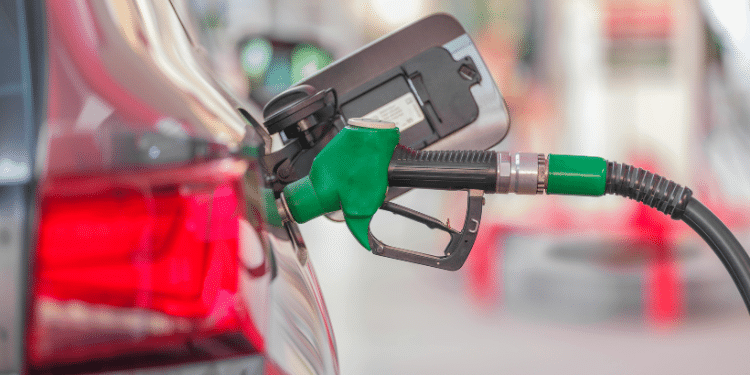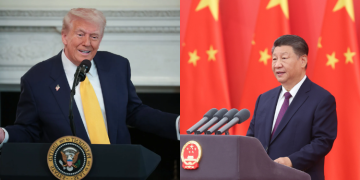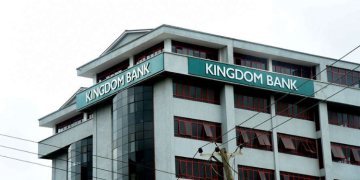On Monday, July 14, 2025, the Energy and Petroleum Regulatory Authority (EPRA) issued a notice announcing new prices for petroleum products, which will be in effect from July 15 to August 14, 2025.
In the latest review, the price of Super Petrol increased by Ksh 8.99 per litre, while those of Diesel and Kerosene increased by Ksh 8.67 per litre and by Ksh 9.65 per litre, respectively.
According to EPRA, the adjusted fuel prices are inclusive of the 16% Value Added Tax (VAT) and the revised excise duty rates adjusted for inflation under Legal Notice No. 194 of 2020.
EPRA Explains Why Fuel Prices Increased
EPRA further explained that the fuel price hike was driven by an increase in the average landed cost of imported petroleum products between May and June 2025.
- The landed cost of Super Petrol increased by 45%, from US$590.24 ( Ksh 76,731) per cubic metre in May 2025 to US$628.30 ( Ksh 81,679) per cubic metre in June 2025.
- Diesel’s landed cost rose by 27%, from US$580.23 ( Ksh 75,430) to US$616.59 (approximately Ksh 80,157) per cubic metre, while that of Kerosene increased by 95%, from US$569.00 (Ksh 73,970) to US$608.54 (Ksh 79,110) per cubic metre during the same period.
Also Read: EPRA Hikes Fuel Prices for July 15 – August 14
Besides the upward pressure from landed costs, where Super Petrol and Diesel have crossed the Ksh 80.00 per litre mark, increased margins for oil marketing companies also resulted in increased fuel prices.
Speaking to The Kenya Times, Professor Fred Ogola- an economist, said the recent rise in fuel prices is also being driven by global factors—particularly the ongoing shift by many countries from fossil fuels to green energy.
“Most countries are transitioning from fossil fuels to green energy. This shift causes a drop in fossil fuel supply, as former producers reduce output to support the transition,” he said.
“You have to stop producing one type of fuel before scaling up the other. During that period, supply decreases. And when supply drops while demand remains high or increases, prices inevitably rise. The global macroeconomic environment is a major reason for the current price hike.”
He added that, Kenyans have not been adequately cushioned against these global shocks, which has contributed to the higher local fuel prices.
According to the Central Bank of Kenya’s (CBK) weekly report, Murban oil prices rose marginally from USD 68.09 ( Ksh 8,851.70) per barrel on July 3 to USD 70.15 ( Ksh 9,119.50) per barrel on July 10.
The increase was driven by strong global demand and renewed concerns over potential U.S. tariff hikes, which outweighed the expected production increase by OPEC+.
Key Factors That Influence Fuel Prices to Rise
- Global Crude Oil Prices
Rising crude prices (e.g., Brent, WTI, Murban) directly increase the cost of refined fuel. - Supply and Demand Dynamics
High demand during economic recovery or reduced supply due to OPEC+ cuts, natural disasters, or conflict pushes prices up. - Exchange Rates
For oil-importing countries like Kenya, a weaker local currency (e.g., Kenyan Shilling against the US Dollar) makes fuel more expensive.
Also Read: EPRA Shuts Down Petrol Stations in Crackdown Against Adulterated Fuel [LIST]
- Government Taxes and Levies
Fuel prices include VAT, excise duty, and other levies. Any increase in these taxes leads to higher pump prices. - Transport and Distribution Costs
Increases in shipping, refining, or pipeline expenses, often due to inflation or insecurity, raise overall fuel costs. - Geopolitical Tensions
Conflicts in oil-producing regions (e.g., the Middle East or Russia-Ukraine) can disrupt supply chains and cause global price spikes.
Follow our WhatsApp Channel and X Account for real-time news updates.







![[Live Blog] Thousands Line Up For Raila’s Final Viewing At Mamboleo A Photo Of Kneyans Viewing The Body Of Raila Odinga At Mamboleo. Photo/Citizen](https://thekenyatimescdn-ese7d3e7ghdnbfa9.z01.azurefd.net/prodimages/uploads/2025/10/a-photo-of-kneyans-viewing-the-body-of-raila-odinga-at-mamboleo.-photocitizen-360x180.png)




































































